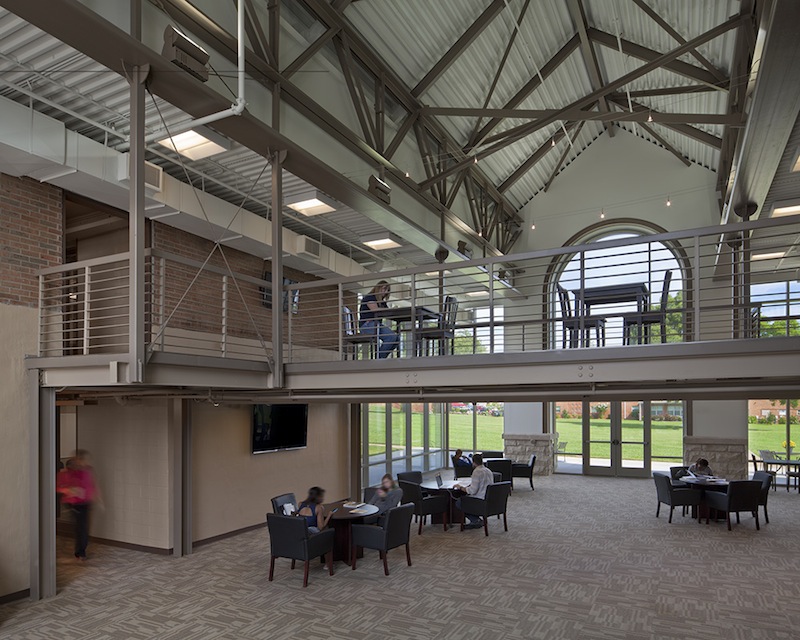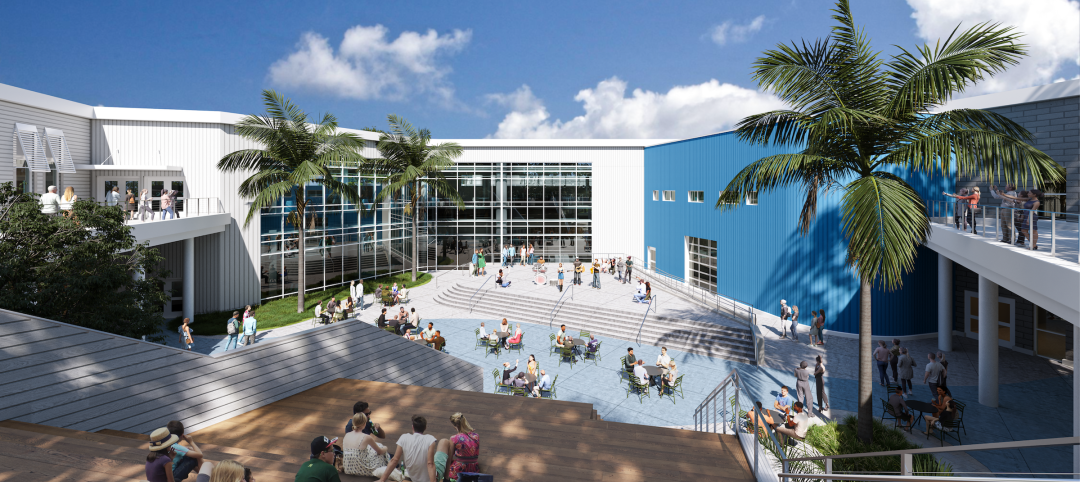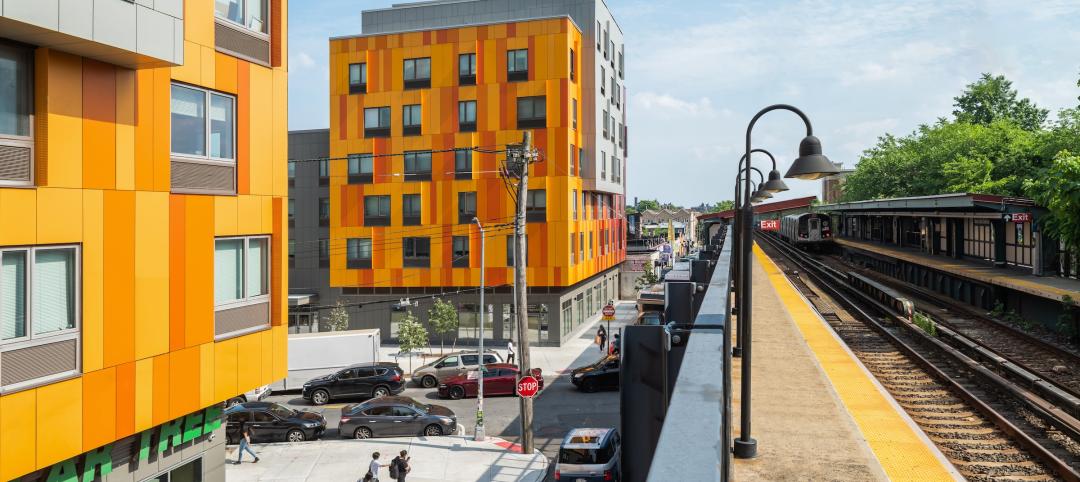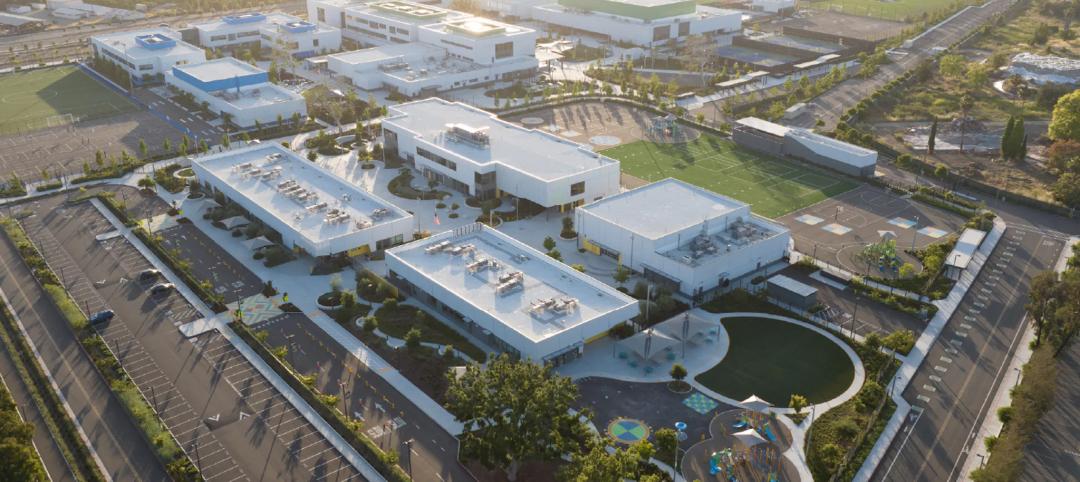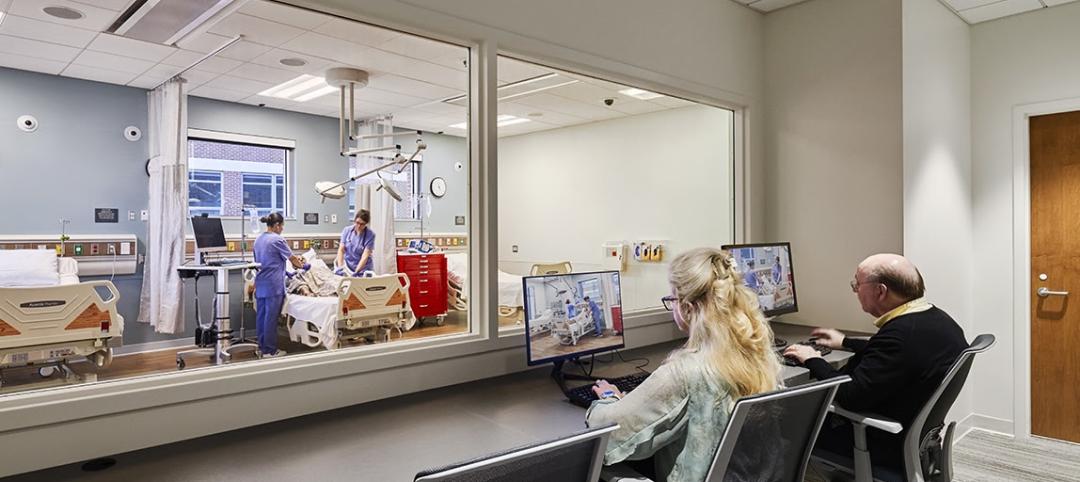In this era of scaled-down budgets, maximized efficiencies, new learning methods and social media’s domination of face time, college and university campuses are gravitating toward a new space type: the learning commons.
A hybrid of a library and a student union, a learning commons is a collaborative, interactive space in which students can gather to study in groups. Rather than perpetuating a separate cloistered-in-a-carrel approach to studying, the learning commons encourages groups of students to gather, usually around monitors or conversationally arranged furniture, for face time and collaboration.
This is especially true for the smaller liberal arts institutions striving to keep the education process as personalized as possible. In addition to contributing to improved learning, these spaces address a broader cultural issue: students are socially connected in physical isolation. A learning commons can entice students out of their dorm rooms and into an environment in which relationships can be formed.
Two converging trends are basically responsible for the establishment of the new type of study space.
First is the desire of the higher education institutions to attract students. The commons should be inviting, comfortable and have digitally connected spaces with convenient availability of food. It should be seen as a fun way to study in aesthetically pleasing surroundings.
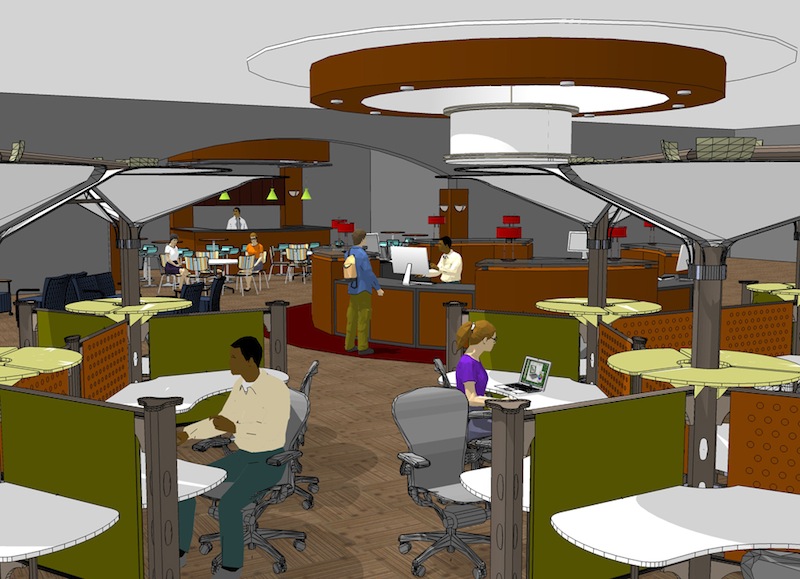
Northwest Nazarene University’s Learning Commons will include student support with academic advisors, testing services, tutors and socialization areas with a café and a variety of collaborative work spaces.
With a goal of student retention and graduation, the second trend is toward providing students with academic, emotional, development and vocational support in the Center for Leadership, Calling, and Service. These efforts are sustained through Trevecca’s version of a learning commons (student success center) that houses tutoring and writing assistance, disability services, developmental math, testing services, counseling services and developmental resources, such as the freshman, sophomore and junior/senior year experiences. There is a strong emphasis on vocation, mentorship and self-discipline through these endeavors.
Supporting the retention goal is an ongoing emphasis on team projects and other assignments that use increased collaboration. Collaboration is, of course, an accepted way of learning and working in the education profession.
ESa advocates that a successful learning commons have ten characteristics:
• Flexible area with movable, soft furniture that can interface with technology so that students can create their own spaces
• Open area that is inviting to students
• Available food, preferably café style with coffees, juices, sodas, light snacks or sandwiches
• Late hours
• Available marker boards for brainstorming
• Help desk
• Private, acoustically separate spaces for tutoring and counseling
• Outdoor space with patios or verandas
• Available seminar rooms/study rooms
• Ample, available power for recharging mobile devices
Establishing a learning commons on a campus can be done through new construction, renovation of an area or designating a portion of an existing space. Cumberland University’s Learning Commons was created with a limited budget through renovation of a former residence hall. The Commons consists of large indoor and outdoor study areas, double-height study lounge, snack bar, 10 seminar/study rooms, six offices and a mock interview suite—including an observation room with filming capabilities. The latter space is invaluable as counselors work with students preparing them for the workforce.
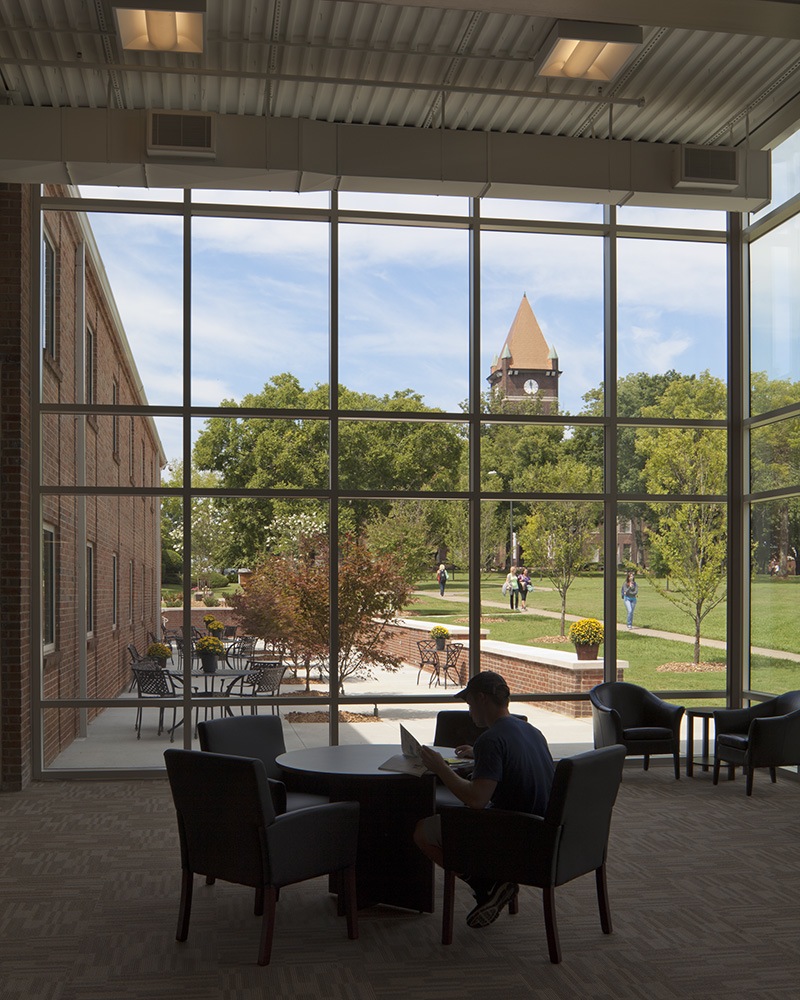
Cumberland University’s Learning Commons
On the other hand, Northwest Nazarene University’s Learning Commons is part of the Riley Library. This facility is scheduled for completion the third quarter of 2014. NNU’s program will include student support with academic advisors, testing services, tutors and socialization areas with a café and a variety of collaborative work spaces.
Support for faculty will be available in the form of multimedia studios for developing course content, as well as resources made available through the Center of Innovation for Teaching and Learning. Library services will include a centralized information desk and a lending desk for library and tech support materials. An IT (hardware and software) support desk will also serve the library and learning commons.
During this digital age, learning commons are an avenue for colleges and universities to get back to basics. No student can be an island for a full higher education experience, and the learning commons enhances education by providing space for collaborative means as well as individual discovery to achieve a more complete experience.
About the Author
Wendell D. Brown, AIA, LEED AP, is a Design Architect/Project Manager with Earl Swensson Associates, Inc.
Related Stories
Office Buildings | May 20, 2024
10 spaces that are no longer optional to create a great workplace
Amenities are no longer optional. The new role of the office is not only a place to get work done, but to provide a mix of work experiences for employees.
Mass Timber | May 17, 2024
Charlotte's new multifamily mid-rise will feature exposed mass timber
Construction recently kicked off for Oxbow, a multifamily community in Charlotte’s The Mill District. The $97.8 million project, consisting of 389 rental units and 14,300 sf of commercial space, sits on 4.3 acres that formerly housed four commercial buildings. The street-level retail is designed for boutiques, coffee shops, and other neighborhood services.
Construction Costs | May 16, 2024
New download: BD+C's May 2024 Market Intelligence Report
Building Design+Construction's monthly Market Intelligence Report offers a snapshot of the health of the U.S. building construction industry, including the commercial, multifamily, institutional, and industrial building sectors. This report tracks the latest metrics related to construction spending, demand for design services, contractor backlogs, and material price trends.
K-12 Schools | May 15, 2024
A new Alabama high school supports hands-on, collaborative, and diverse learning
In Gulf Shores, a city on Alabama’s Gulf Coast, a new $137 million high school broke ground in late April and is expected to open in the fall of 2026. Designed by DLR Group and Goodwyn Mills Cawood, the 287,000-sf Gulf Shores High School will offer cutting-edge facilities and hands-on learning opportunities.
Adaptive Reuse | May 15, 2024
Modular adaptive reuse of parking structure grants future flexibility
The shift away from excessive parking requirements aligns with a broader movement, encouraging development of more sustainable and affordable housing.
Affordable Housing | May 14, 2024
Brooklyn's colorful new affordable housing project includes retail, public spaces
A new affordable housing development located in the fastest growing section of Brooklyn, N.Y., where over half the population lives below the poverty line, transformed a long vacant lot into a community asset. The Van Sinderen Plaza project consists of a newly constructed pair of seven-story buildings totaling 193,665 sf, including 130 affordable units.
K-12 Schools | May 13, 2024
S.M.A.R.T. campus combines 3 schools on one site
From the start of the design process for Santa Clara Unified School District’s new preK-12 campus, discussions moved beyond brick-and-mortar to focus on envisioning the future of education in Silicon Valley.
University Buildings | May 10, 2024
UNC Chapel Hill’s new medical education building offers seminar rooms and midsize classrooms—and notably, no lecture halls
The University of North Carolina at Chapel Hill has unveiled a new medical education building, Roper Hall. Designed by The S/L/A/M Collaborative (SLAM) and Flad Architects, the UNC School of Medicine’s new building intends to train new generations of physicians through dynamic and active modes of learning.
Sustainability | May 10, 2024
Perkins&Will’s first ESG report discloses operational performance data across key metrics
Perkins&Will recently released its first ESG report that discloses the firm’s operational performance data across key metrics and assesses its strengths and opportunities.
MFPRO+ News | May 10, 2024
HUD strengthens flood protection rules for new and rebuilt residential buildings
The U.S. Department of Housing and Urban Development (HUD) issued more stringent flood protection requirements for new and rebuilt homes that are developed with, or financed with, federal funds. The rule strengthens standards by increasing elevations and flood-proofing requirements of new properties in areas at risk of flooding.


